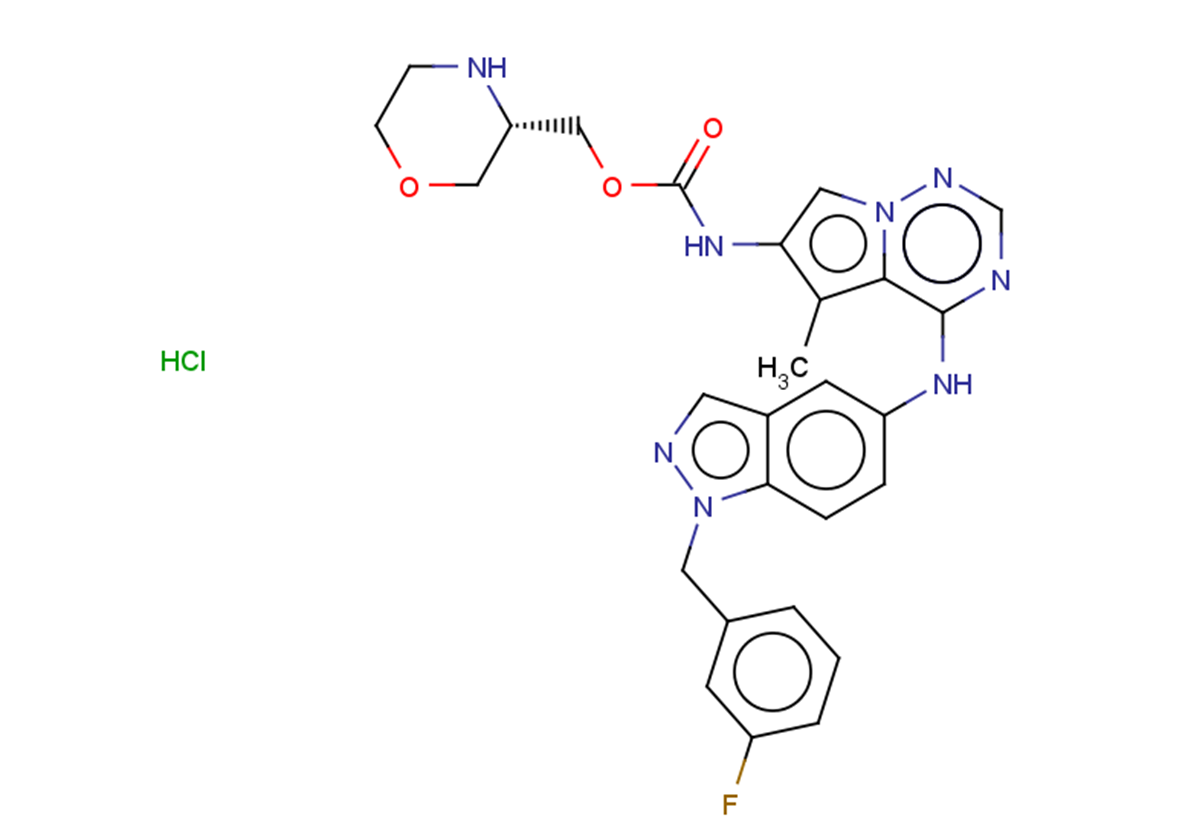BMS-599626 Hydrochloride
| Code | Size | Price |
|---|
| TAR-T5390-1mg | 1mg | £100.00 | |||||||||||||||||||||||||||||||||||||||||||||||||||||||||||||||||||||||||||||||||||||||||||||||||
| Special offer! Add £1 to your order to get a TargetMol CCK-8 Kit. Read more here. | |||||||||||||||||||||||||||||||||||||||||||||||||||||||||||||||||||||||||||||||||||||||||||||||||||
Quantity:
| TAR-T5390-5mg | 5mg | £140.00 | |||||||||||||||||||||||||||||||||||||||||||||||||||||||||||||||||||||||||||||||||||||||||||||||||
| Special offer! Add £1 to your order to get a TargetMol CCK-8 Kit. Read more here. | |||||||||||||||||||||||||||||||||||||||||||||||||||||||||||||||||||||||||||||||||||||||||||||||||||
Quantity:
| TAR-T5390-1mL | 1 mL * 10 mM (in DMSO) | £158.00 | |||||||||||||||||||||||||||||||||||||||||||||||||||||||||||||||||||||||||||||||||||||||||||||||||
| Special offer! Add £1 to your order to get a TargetMol CCK-8 Kit. Read more here. | |||||||||||||||||||||||||||||||||||||||||||||||||||||||||||||||||||||||||||||||||||||||||||||||||||
Quantity:
| TAR-T5390-10mg | 10mg | £177.00 | |||||||||||||||||||||||||||||||||||||||||||||||||||||||||||||||||||||||||||||||||||||||||||||||||
| Special offer! Add £1 to your order to get a TargetMol CCK-8 Kit. Read more here. | |||||||||||||||||||||||||||||||||||||||||||||||||||||||||||||||||||||||||||||||||||||||||||||||||||
Quantity:
| TAR-T5390-25mg | 25mg | £274.00 | |||||||||||||||||||||||||||||||||||||||||||||||||||||||||||||||||||||||||||||||||||||||||||||||||
| Special offer! Add £1 to your order to get a TargetMol CCK-8 Kit. Read more here. | |||||||||||||||||||||||||||||||||||||||||||||||||||||||||||||||||||||||||||||||||||||||||||||||||||
Quantity:
| TAR-T5390-50mg | 50mg | £430.00 | |||||||||||||||||||||||||||||||||||||||||||||||||||||||||||||||||||||||||||||||||||||||||||||||||
| Special offer! Add £1 to your order to get a TargetMol CCK-8 Kit. Read more here. | |||||||||||||||||||||||||||||||||||||||||||||||||||||||||||||||||||||||||||||||||||||||||||||||||||
Quantity:
| TAR-T5390-100mg | 100mg | £600.00 | |||||||||||||||||||||||||||||||||||||||||||||||||||||||||||||||||||||||||||||||||||||||||||||||||
| Special offer! Add £1 to your order to get a TargetMol CCK-8 Kit. Read more here. | |||||||||||||||||||||||||||||||||||||||||||||||||||||||||||||||||||||||||||||||||||||||||||||||||||
Quantity:
Prices exclude any Taxes / VAT
Overview
Regulatory Status: RUO
Shipping:
cool pack
Storage:
-20°C
Images
Documents
Further Information
Bioactivity:
BMS-599626 Hydrochloride is an orally bioavailable inhibitor of the HER1, HER2 and HER4 tyrosine kinases (IC50 =22, 32 and 190 nM, respectively) with potential antineoplastic activity. BMS-599626 Hydrochloride inhibits human epidermal growth factor receptors (HER) HER1, HER2 and HER4, thereby inhibiting the proliferation of tumor cells that overexpress these receptors.
CAS:
873837-23-1
Molecular Weight:
567.01
Pathway:
JAK/STAT signaling|Angiogenesis|Tyrosine Kinase/Adaptors
Purity:
1
SMILES:
N(C=1C=2N(C=C(NC(OC[C@@H]3COCCN3)=O)C2C)N=CN1)C=4C=C5C(=CC4)N(CC6=CC(F)=CC=C6)N=C5.Cl
Target:
HER
References
Torres MA, et al. AC480, formerly BMS-599626, a pan Her inhibitor, enhances radiosensitivity and radioresponse of head and neck squamous cell carcinoma cells in vitro and in vivo. Invest New Drugs. 2011 Aug;29(4):554-61.
Wong TW, et al. Preclinical antitumor activity of BMS-599626, a pan-HER kinase inhibitor that inhibits HER1/HER2 homodimer and heterodimer signaling. Clin Cancer Res. 2006 Oct 15;12(20 Pt 1):6186-93.



